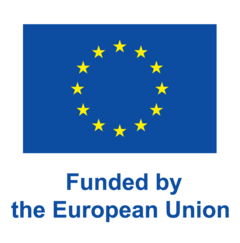HIGH Horizons
Heat Indicators for Global Health: Monitoring, Early Warning Systems and health facility interventions for pregnant and postpartum women, infants and young children and health workers.
The HIGH Horizons project will run over four years and includes ten partners across nine countries, and encompasses activities in both the EU and sub-Saharan Africa. The project addresses a number of key knowledge gaps around the quantification and monitoring of direct and indirect impacts of heat exposure on maternal, newborn and child health (MNCH). In the project, pregnant women, infants and health workers serve as sentinel populations for tracking climate change impacts, adaptations and co-benefits. These are key populations and protecting them is critical for creating a living and working life that is health promoting, and for ensuring a healthy future for the next generation.
HIGH Horizons project information
The call was announced by the European Commission Horizon Programme, Health and Digital Executive Agency 2021. (Call HORIZON-HLTH-2021-ENVHLTH-02).
Details about Project ID: 101057843 – on the European Comission website
Project title:
Heat Indicators for Global Health (HIGH Horizons): monitoring, Early Warning Systems and health facility interventions for pregnant and postpartum women, infants and young children and health workers.
Acronym:
HIGH Horizons
Project Officer:
Ms. Nerea Aizpurua, European Commission, Health and Digital Executive Agency
Project Management Team
- Scientific Coordinator
Stanley Luchters, Professor, Ghent University, Belgium - Deputy Scientific Coordinator
Debra Jackson, Professor, LSHTM, United Kingdom - Project Manager
Birgit Kerstens, Researcher, Ghent University, Belgium
Partners
- Universiteit Gent (UGENT), Gent, Belgium - Coordinator
- Wits Health Consortium (PTY) Ltd (WHC), Johannesburg, South Africa
- Lunds universitet (ULUND), Lund, Sweden
- Karolinska Institutet (KI), Stockholm, Sweden
- World Health Organization (WHO), Geneve, Switzerland
- Danmarks Tekniske Universitet (DTU), Kongens Lyngby, Denmark
- Universitaet Graz (UNI GRAZ), Graz, Austria
- Aga Khan Health Service Kenya LBG (AKHS), Nairobi, Kenya
- Centre for Sexual Health and HIV and AIDS Research (CeSHHAR Zim), Harare, Zimbabwe
- London School of Hygiene and Tropical Medicine Royal Charter (LSHTM), London, United Kingdom
Duration: 48 months (September 2022 - August 2026)
Overall budget: 8 759 066.25 EURO (Lund University: 690 611.25 EURO)
Background
The 2021 Assessment Report of the UN Intergovernmental Panel on Climate Change noted that global surface temperatures have already risen by 1.1°C compared to the pre-industrial period, and the it gave an ominous warning that the world may reach 1.5° to 2°C of warming earlier than previously anticipated. Record-breaking temperatures are more frequent, intensive, and last longer. Heat-related mortality and morbidity will continue to rise dramatically unless major emission reductions and adaptations are implemented. There are already more than 350,000 deaths annually from extreme heat. Extreme heat is associated with at least 17 causes of death – largely cardiorespiratory or metabolic disease, but also suicide and several types of injury. Severe morbidities linked to extreme heat, however, especially in maternal and child health, occupational settings and through indirect impacts outweigh the numbers of deaths several fold. Most importantly, heat exposure and vulnerability to impacts vary widely across geographical areas, population groups, and by socio-economic status. Designing effective climate policies depends on rigorous quantification and monitoring of heat-related impacts, assessing the costs of inaction, and systematically weighing the costs and benefits of alternative actions among the most vulnerable, highest-risk groups.
Specific objectives
- Identify and select suitable indicators for quantifying and monitoring the global, EU and national-level health impacts of extreme heat among pregnant and postpartum women, newborns and infants in Europe and sub-Saharan Africa.
- Develop and test an Early Warning System using a smartphone app to provide individualized heat stress warnings, and locally-adapted messaging for protecting pregnant and postpartum women, infants and health workers.
- Identify cost-effective, integrated adaptation-mitigation interventions to alleviate heat impacts on health workers, and to reduce carbon emissions associated with health care.
- Support global and EU climate policies and activities on the monitoring of direct and indirect impacts of climate change on health, and the strengthening of Early Warning Systems through guidance documents, and risk assessment and cost-benefit analysis tools.

Work Packages
Scientific Coordinator: Stanley Luchters, Ghent University
Project Manager: Birgit Kerstens, Ghent University
Leader: Ilona Otto, University of Graz
Co-Leader: KI
Leader: Chuansi Gao, Lund University
Co-Leader: WHO
Leader: Stanley Luchters, Centre for Sexual Health and HIV and AIDS Reserach
Co-Leader: Wits Health Consortium
Leader: Veronique Filippi, London School of Hygiene and Tropical Medicine Royal Charter
Co-Leader: Wits Health Consortium
Leader: Anayda Gerarda Portela, WHO
Co-Leader: Wits Health Consortium
Related project
Belmont Forum Collaborative Research:
the AWARD-APR Project (external website): Addressing Extreme Weather Related Diarrheal Disease Risks in the Asia-Pacific Region
